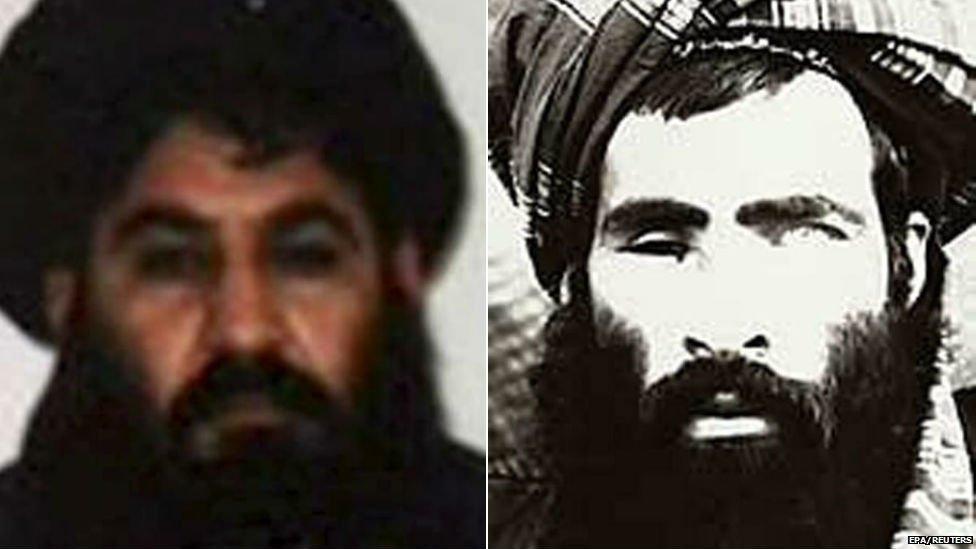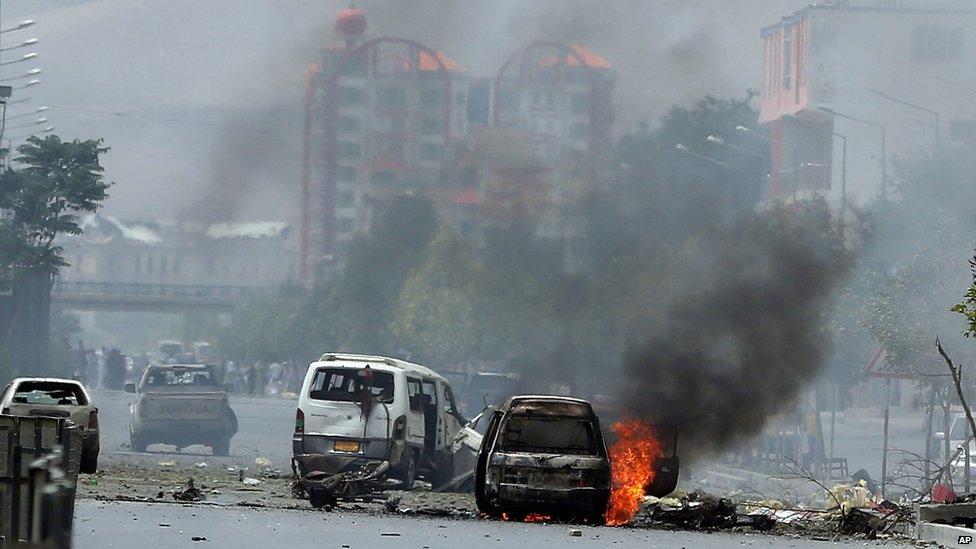New Taliban leader Mullah Akhtar Mansour calls for unity
- Published
Funeral prayers were held in Pakistan for the deceased Taliban leader
The new leader of the Afghan Taliban, Mullah Akhtar Mansour, has called for unity in an audio message, saying that the group will continue fighting.
Mullah Mansour was named as the new leader on Thursday, after the death of former head Mullah Omar was confirmed.
But a Taliban spokesman told the BBC he had not been appointed "by all Taliban", going against Sharia law.
The audio message said fighters should unite as "division in our ranks will only please our enemies".
It also said that the Taliban would "continue our jihad until we bring an Islamic rule in the country".
The 30-minute recording - in which a crying baby is heard at some points - was released to journalists by Taliban spokesman Zabiullah Mujahid on Saturday.


Many are unhappy that Mullah Mansour (l) has been chosen to succeed Mullah Omar
Analysis - Dawood Azami, BBC World Service
The first public message from the Afghan Taliban's new leader, Mullah Mansour, indicates that his way of doing things will be different from that of his reclusive predecessor, Mullah Omar, who relied on issuing written statements.
The recording is of a speech that he made to a gathering of apparently dozens of his supporters, after his appointment on Thursday.
Faced with opposition to his selection from several high-ranking Taliban, the new leader is now focused on consolidating his power and establishing his authority.
The speech repeatedly calls for unity and is primarily aimed at calming dissent.
Mullah Mansour says that his new role is not a "kingship" but a huge responsibility.
He is also trying to present himself as a tolerant, forgiving and conciliatory person whose decisions will be "based on Islamic Sharia". There doesn't seem to be a major policy shift from the past.
In his speech, he sounds relaxed and doesn't seem to be reading from notes.

Some Taliban figures have accused pro-Pakistani circles of imposing Mullah Mansour, who is known for his support for peace talks, on them.
But in the audio message, Mullah Mansour dismissed peace talks as "propaganda campaigns by the enemy".
At least one Taliban faction would have preferred Mullah Omar to be succeeded by his son.
Another Taliban spokesman, Mullah Abdul Manan Niazi, said those who elected Mullah Mansour had not followed the rules.
"According to Islamic rule and principles, when a leader dies, a Shura (council) is called, then its leader is appointed," he added.

The Taliban have vowed to continue with attacks such as the one that hit the Afghan parliament in June